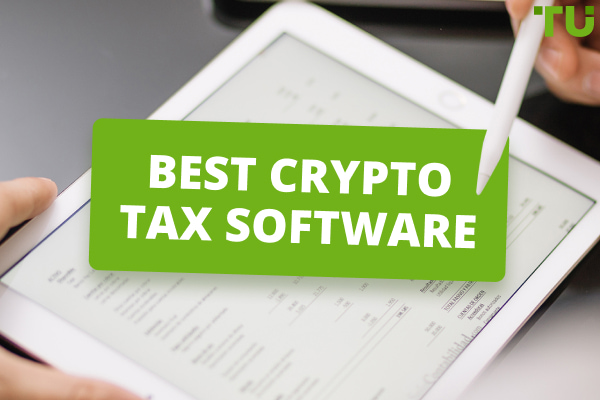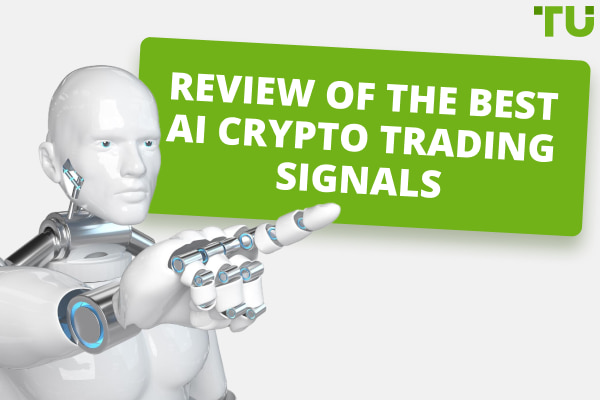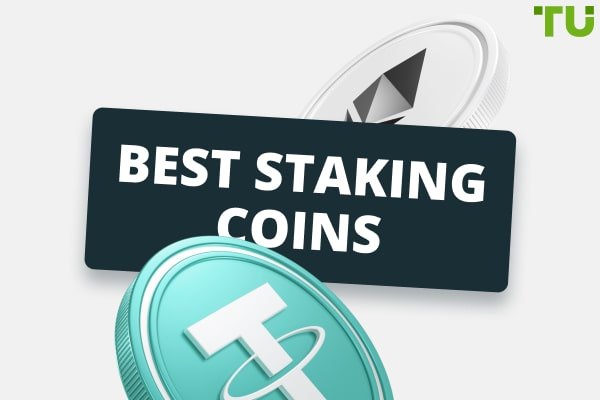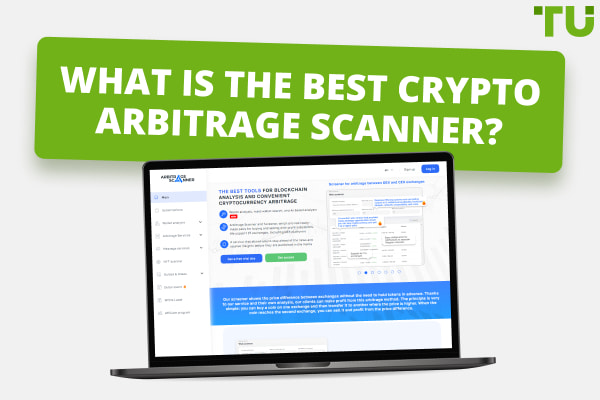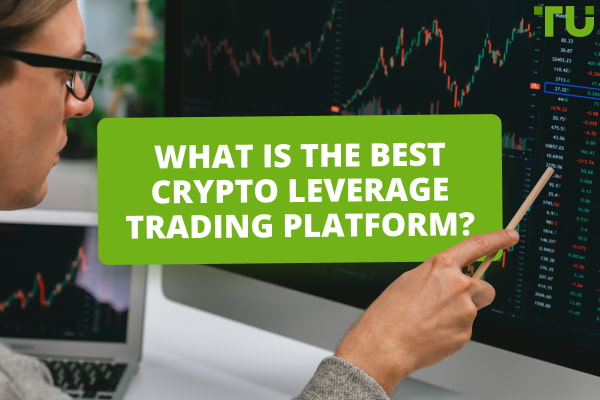Cheapest places to buy Bitcoin in 2024
Bitcoin is a digital currency that is stored and traded online. Bitcoins are distributed and exchanged in a decentralized ledger system called a blockchain. Numerous platforms facilitate the trading of Bitcoin, but prices differ. So how do you find the best deals on Bitcoin for maximum profit? This article will explore the cheapest places to buy crypto, how to choose these places and whether it is a good time to buy Bitcoin.
Start Trading Crypto Now with ByBit!What Are the Cheapest Places to Buy Crypto in 2024?
A cryptocurrency exchange is a platform that facilitates the trading of digital currencies for other assets. We’ll look at three types:
Low-Fee Crypto Exchanges
Also known as Centralized Exchanges (CEX), the buyer and seller transact using an intermediary. How it works is the middle person plays the role of the “bank”, storing the cryptocurrency for the seller until they match you to a buyer. The intermediary charges a transaction fee for facilitating this exchange.
Some CEXs provide crypto trading pairs, such as the US dollar and bitcoin, which makes them a good choice for novice traders. Some also offer spot trading, which is the buying and selling of assets at the spot/market price. Finally, some crypto exchanges offer free spot trading on their pairs. For example, as of mid-2023, Binance announced that it would provide free spot trading until further notice in celebration of its fifth anniversary.
If you are a beginner looking to test the waters of trading crypto, CEXs are a great place to start. However, the caveat is that these centralized exchanges are prone to be hacked; therefore, it is vital to do your due diligence before making a choice.
Top 8 Cheapest Cryptocurrency ExchangesPeer-To-Peer (P2P) Crypto Platforms
These are platforms where buyers and sellers transact directly without an intermediary. Another name is Decentralized Exchanges (DEX). Typically, these platforms do not charge a trading fee. However, depending on the payment provider, there may be a small transaction fee.
Additionally, they may have large spreads, resulting in spending more than you initially anticipated. So be on the lookout for this!
An example of a popular P2P crypto platform is ByBit which charges zero transaction fees and supports multiple payment methods such as e-wallets, credit and debit cards, and bank transfers.
Compared to the CEX, this trading platform is more secure and less vulnerable to hacking. It also doesn’t involve the complexities of studying too many charts while trading, making it a top choice for many traders globally. However, it still requires levels of expertise that some beginners may not yet possess.
10 Best P2P Crypto ExchangesHybrid Exchanges
As the name suggests, this type of exchange combines features from Centralized and Decentralized Exchanges, precisely the functionality and liquidity of a CEX and the security of a DEX.
The first Hybrid Exchange, Qurrex, was developed in 2017, and many believe this is the direction that cryptocurrency will take. Its best features include the following:
high performance - it can process 70,000 transactions in a single second, has no data loss, and very minimal delay
total transparency - Qurrex regularly publishes its financial statements, which are available to the public
fast and efficient transaction options - deposits and withdrawals can be processed at any time, with an additional multilingual customer support provision
reliable security - you can be sure that your money will be safe in your e-wallet
So, a Hybrid Exchange could be a good option if you’re a beginner looking for a secure yet user-friendly platform for trading crypto.
Top 8 Cheapest Platforms to Buy Crypto in 2024
Bybit
Bybit is another crypto exchange that offers low trading fees. The platform’s cost-effective fee structure is friendly to traders. It also offers different tiers. The higher your tier is, the less you have to pay in trading fees. For example, taker fees go as low as 0.03% for derivatives and 0.02% for spot trading.
The exchange also offers maker rebates to encourage more market-making activities and provide better market depth, as a result.
Binance US
Binance US supports over 100 cryptocurrencies, is available in 180 countries, and is one of the cheapest cryptocurrency exchanges out there. In fact, their trading fees are up to ten times lower than other crypto platforms. For Bitcoin pairs (BTC/USD, BTC/USDT, BTC/USDC, BTC/BUSD), fees are 0%.
When trading on Binance US, you’ll also benefit from:
0% fees when using Convert (crypto-to-crypto and crypto-to-USD)
0% fees when using OTC (Over-the-Counter) Portal
0.5% fees on buy and sell orders placed on the Buy Crypto page
In addition to low trading fees, you can also get a discount when you use Binance Coin (BNB) — the platform’s native coin — to pay for trading fees.
Binance vs Binance US - What Are the Differences?Kraken
Kraken trading fees are relatively low compared to competitors, with fees ranging from 0% to 0.26% per trade. And the platform’s maker-taker fees are amongst the lowest in the industry.
Kraken also offers a Pro account option, which consists of a tiered fee structure that allows high-volume traders to save on trading fees. So, for example, if you’re a trader with 30-day volumes of less than $50,000, you’ll pay as low as 0.16% in maker fees and 0.26% in taker fees.
But if you’re a trader with 30-day rolling volumes of over $10 million, maker fees can drop as low as 0%, and taker fees can drop as low as 0.10%. Beyond its low cryptocurrency trading fees, Kraken is also a great choice for traders because it supports a large number of cryptocurrencies and is a highly liquid exchange.
OKEx
For most users, OKEx charges 0.10% or less per trade. However, the platform charges 0.08% for makers. These are some of the lowest trading fees on the market. Higher trading volumes or having larger stakes in OKX's native currency (OKB) can reduce trading fees on the platform. There are other factors that can affect how much you pay in fees on OKEx, including:
Whether you have a primary or sub account
Your total assets balance
Whether you’re a maker or taker
BitMEX
BitMEX offers some of the lowest fees in the crypto exchange landscape. When trading on the platform, you can expect to pay 0.075% on the lowest tier for taker fees. On the other hand, as a price maker, you can receive a 0.01% rebate on each trade.
If you’re a high-volume trader, you can also receive discounted price taker fees. For example, if you have a 30-day average daily volume of over 5,000,000, your taker fees will be as low as 0.050%.
Plus, you won’t have to worry about paying Bitcoin deposits or withdrawals. You’ll only have to pay the Bitcoin network fee.
Huobi Global
Huobi Global is another crypto exchange with low fees, charging all traders (both makers and takers) a 0.2% base fee. And if you’re a Huobi Global token (HT) holder, you can receive a discount on trading fees, which decreases the more HT you have in your exchange wallet.
The platform also offers a tiered structure that allows you to save on trading fees. The higher the tier, the lower your trading fees. For example, as a Professional Trader on Huobi Global, you can enjoy a flat discount on the handling fee by holding 2,000 HT instead of 5,000.
You can also benefit from a 30% discount on spot market crypto trading and interest rate for leverage trading without having to worry about an extra HT handling fee.
The platform also supports margin trading in bitcoin (BTC) and Litecoin (LTC) with 5x leverage and a fee of 0.1% for 24 hours.
Currency.com
While most cryptocurrency exchanges charge different fees for makers and takers, Currency.com charges the same flat rate of 0.20% for both the makers and the takers. This rate is also below the global industry average of 0.25%.
Currency.com also offers margin trading, which has a separate fee structure where there’s a marked difference between the fees for makers and takers. Taker fees are charged at 0.075%, whereas makers get paid to trade at 0.025%.
Another nice feature of Currency.com is that you can get started with as little as $5, which can attract traders of all levels to create an account with the exchange.
What Are the Main Bitcoin Costs?
There are three components to consider when looking at the main Bitcoin costs, namely:
Maker and Taker Fees
This term refers to the charges on orders when they are placed and filled. However, before we go any further, we must understand two key words: “makers” create the market for people to trade, adding liquidity to the exchange, while “takers” fill available orders, thus reducing liquidity.
You are a taker when you create an order that gets filled wholly and immediately. But, on the other hand, you are a maker when you place an order that doesn’t get filled immediately. The rates charged for makers are usually lower than takers' fees to incentivize traders to make orders, consequently adding liquidity to the market.
These fees vary from platform to platform, ranging from 0.16% to free.
Can we minimize these fees? We sure can! One way to do this is by investing in the native currency of that particular platform. Since there will be no exchange rate, you will likely save on extra charges by going this route. In addition, some platforms outside the US even provide further special discounts specifically for users who use their native currency.
Withdrawal Fee
On top of the network or payment provider fees, exchanges typically charge a fee for Bitcoin withdrawals. The exact figure is usually set as a percentage of the value of the transaction, and it varies from platform to platform.
However, a flat fee is sometimes charged to traders, covering the transaction costs of moving funds in and out of their accounts. Binance is an excellent example of where this applies.
Bid/Ask Spread
This term refers to the difference between the highest amount a buyer is willing to pay and the lowest amount a seller will agree to receive for an asset in the market. Assets with lower bid/ask spreads are typically in higher demand than those with higher ones.
Liquidity plays a significant role in the spreads. Usually, the leading crypto exchanges have high liquidity, resulting in tight bid/ask spreads.
What Are the Cheapest Crypto Exchanges?
It is rated the best crypto international exchange, whereas Binance US is rated the best crypto exchange in the United States. The reason behind these ratings is that they offer free crypto spot trading, meaning you can buy and sell crypto at no fee. Additionally, they have cheap withdrawal methods available, ranging from 0.45% to free.
However, it is essential to note that many hidden fees and misleading discounts may give the wrong impression about the actual costs that a trader will incur. As a result, it is advisable to take your time to analyze every cost in an exchange before concluding that it is the cheaper option.
Best Crypto ExchangesHow To Choose the Best Place to Buy Bitcoin Without a Fee
There are multiple things to consider when making this choice. Below are the criteria for choosing a crypto exchange:
Reliability
When storing and trading your money, the critical thing on your mind is security. So, how safe are your funds? This question will be answered by the reliability of the platform you choose to trade your bitcoin. Firstly, ensure that a trusted body regulates and licenses the cryptocurrency exchange. This way, there is accountability and transparency as far as your assets are concerned.
How can this be determined? By conducting an internet search. Many users tend to leave reviews online to share their personal experiences. There may even be provisions to rate these platforms. You ought to pay attention to the exchange platforms that get multiple 0 or 1-star ratings; these may have inferior services or be scammers.
Low Fees
As we had seen earlier in this article, there are several fees charged to a trader by crypto exchanges. These fees include transaction fees, bid/ask spreads, maker and taker, and deposit and withdrawal fees. Different platforms charge differently, so it’s essential to consider all the possible expenses and calculate the one with the lowest charges.
Additionally, look out for platforms that offer loyalty programs. These services will save you a pretty penny by granting you access to VIP discounts and waivers.
Multilingual Customer Support
Did you know that there are more than 700 languages across the globe? Therefore, a cryptocurrency exchange that provides multilingual customer support is beneficial. These benefits include a broader global market and a richer trading experience in that users can interact with others who speak a similar language. In addition, Crypto exchanges with this feature tend to have more engagement resulting in a larger pool of networks and trading opportunities.
User-Friendly App
An app is user-friendly if it facilitates easy and cost-effective deposits and withdrawals, multiple payment methods, a range of currencies, and low or no trading fees. Additionally, the interface and availability of a mobile version for smartphone use are vital considerations.
Best Crypto Signals App for FreeHow To Buy Crypto Online
Once you have understood how the world of cryptocurrency works, buying crypto online is relatively simple. Below are a few quick steps:
First, visit a cryptocurrency exchange online platform.
Register your account.
Verify your identity and ensure you have a secure password.
Follow the instructions on how to purchase Bitcoin.
Browse through to identify buying or selling opportunities.
To buy, initiate a trade.
Make the payment according to your agreement with the seller.
Once the seller confirms the payment receipt, the Bitcoin will be released to your crypto wallet.
Best Crypto Wallets To Save Your Crypto Safely
If you are wondering which crypto wallets are the best for keeping your crypto safe, they are:
Coinbase Wallet: The Coinbase Wallet enables users to manage their own private keys. while also storing their crypto coins on their devices directly. There is no way to connect Coinbase Wallets to your bank account or complete other similar transactions that veer outside of the crypto realm.
Trezor: The Trezor wallet is considered by many to be one of the best cold wallets for those seeking security. Trezor hardware wallets are the safest and most resilient way to secure Bitcoin and cryptocurrency assets offline. In addition, Trezor wallets never expose your digital asset information to an insecure environment connected to the internet.
Luno Wallet: Luno Wallet is considered one of the best crypto wallets for beginners. This is because it is highly user-friendly, making it simple for even the newest investors to use.
Ledger: Ledger is considered the best cold wallet with Bluetooth. It is also one of the most secure ways to store your cryptocurrency overall.
Trust Wallet: Trust Wallet is considered the best simplified hot wallet. It is a non-custodial digital wallet that stores cryptocurrencies using hot storage.
Arculus: The Arculus is considered the best cold wallet with a hardware card. This crypto wallet is considered highly secure because it offers 3-factor authentication and provides investors with cold storage for crypto and NFTs while also keeping your private keys accessible to you solely.
Is it a Good Time to Buy Crypto Now?
Before we can determine the answer to this question, we must understand how crypto traders and the global markets work.
There are typically two types of traders regarding cryptocurrency: a bearish trader invests with the anticipation that prices will drop, whereas a bullish trader invests with the hope that prices will rise.
A bull market is where the economy is generally stable and on the rise, while a bear market is where stocks are losing value; therefore, the economy is declining.
The crypto bear market is a good time for long-term crypto investors. In this case, you do not expect a return on your investment for at least a couple of years. However, due to bitcoin’s high volatility, short-term trade positions can give high returns. The latter may sound appealing, but it is also quite risky.
The bottom line is that your risk appetite will determine whether or not you will invest in Bitcoin, and it will also dictate whether you will assume a long or short-term position.
Remember to do your due diligence before investing in crypto. There is a vast array of resources online. Read reviews, ask experienced traders and follow the news.
FAQ
What is Bitcoin?
Bitcoin is a digital currency that is stored and traded online and is distributed and exchanged in a decentralized ledger system called a blockchain.
What is a cryptocurrency exchange?
A cryptocurrency exchange is a platform that facilitates the trading of digital currencies for other assets.
Who invented Bitcoin?
It isn’t public knowledge who invented Bitcoin, but the founders go by the pseudonym, Satoshi Nakamoto.
Is Bitcoin popular globally?
Yes. Bitcoin is one of the most popular cryptocurrencies worldwide, with approximately 190 million users.
Methodology for compiling our ratings of crypto exchanges
Traders Union applies a rigorous methodology to evaluate crypto exchanges using over 100 quantitative and qualitative criteria. Multiple parameters are given individual scores that feed into an overall rating.
Key aspects of the assessment include:
User reviews. Client reviews and feedback are analyzed to determine customer satisfaction levels. Reviews are fact-checked and verified.
Trading instruments. Exchanges are evaluated on the range of assets offered, as well as the breadth and depth of available markets.
Fees and commissions. All trading fees and commissions are analyzed comprehensively to determine overall costs for clients.
Trading platforms. Exchanges are assessed based on the variety, quality, and features of platforms offered to clients.
Extra services. Unique value propositions and useful features that provide traders with more options for yield generation.
Other factors like brand popularity, client support, and educational resources are also evaluated.
Glossary for novice traders
-
1
Broker
A broker is a legal entity or individual that performs as an intermediary when making trades in the financial markets. Private investors cannot trade without a broker, since only brokers can execute trades on the exchanges.
-
2
Trading
Trading involves the act of buying and selling financial assets like stocks, currencies, or commodities with the intention of profiting from market price fluctuations. Traders employ various strategies, analysis techniques, and risk management practices to make informed decisions and optimize their chances of success in the financial markets.
-
3
Bitcoin
Bitcoin is a decentralized digital cryptocurrency that was created in 2009 by an anonymous individual or group using the pseudonym Satoshi Nakamoto. It operates on a technology called blockchain, which is a distributed ledger that records all transactions across a network of computers.
-
4
Cryptocurrency
Cryptocurrency is a type of digital or virtual currency that relies on cryptography for security. Unlike traditional currencies issued by governments (fiat currencies), cryptocurrencies operate on decentralized networks, typically based on blockchain technology.
-
5
Investor
An investor is an individual, who invests money in an asset with the expectation that its value would appreciate in the future. The asset can be anything, including a bond, debenture, mutual fund, equity, gold, silver, exchange-traded funds (ETFs), and real-estate property.
Team that worked on the article
Ivan is a financial expert and analyst specializing in Forex, crypto, and stock trading. He prefers conservative trading strategies with low and medium risks, as well as medium-term and long-term investments. He has been working with financial markets for 8 years. Ivan prepares text materials for novice traders. He specializes in reviews and assessment of brokers, analyzing their reliability, trading conditions, and features.
Olga Shendetskaya has been a part of the Traders Union team as an author, editor and proofreader since 2017. Since 2020, Shendetskaya has been the assistant chief editor of the website of Traders Union, an international association of traders. She has over 10 years of experience of working with economic and financial texts. In the period of 2017-2020, Olga has worked as a journalist and editor of laftNews news agency, economic and financial news sections. At the moment, Olga is a part of the team of top industry experts involved in creation of educational articles in finance and investment, overseeing their writing and publication on the Traders Union website.









